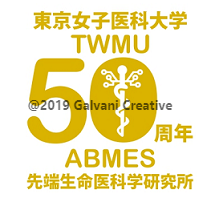高橋宏信 講師の論文です。
“Simulated microgravity accelerates aging of human skeletal muscle myoblasts at the single cell level”
TAKAHASHI Hironobu†*, NAKAMURA Asuka, SHIMIZU Tatsuya
Biochemical and Biophysical Research Communications, 578, 115-121(2021)
doi: 10.1016/j.bbrc.2021.09.037
Abstract
Earth’s gravity is essential for maintaining skeletal muscle mass and function in the body. The role of gravity in the myogenic mechanism has been studied with animal experiments in the International Space Station. Recently, gravity-control devices allow to study the effects of gravity on cultured cells on the ground. This study demonstrated that simulated microgravity accelerated aging of human skeletal muscle myoblasts in an in-vitro culture. The microgravity culture induced a significant decrease in cell proliferation and an enlargement of the cytoskeleton and nucleus of cells. Similar changes are often observed in aged myoblasts following several passages. In fact, by the microgravity culture the expression of senescence associated β-Gal was significantly enhanced, and some muscle-specific proteins decreased in the enlarged cells. Importantly, these microgravity effects remained with the cells even after a return to normal gravity conditions. Consequently, the microgravity-affected myoblasts demonstrated a reduced capability of differentiation into myotubes. In the body, it is difficult to interpret the disability of microgravity-affected myoblasts, since muscle regeneration is linked to the supply of new myogenic cells. Therefore, our in-vitro cell culture study will be advantageous to better understand the role of each type of myogenic cell in human muscle without gravitational stress at the single cell level.





